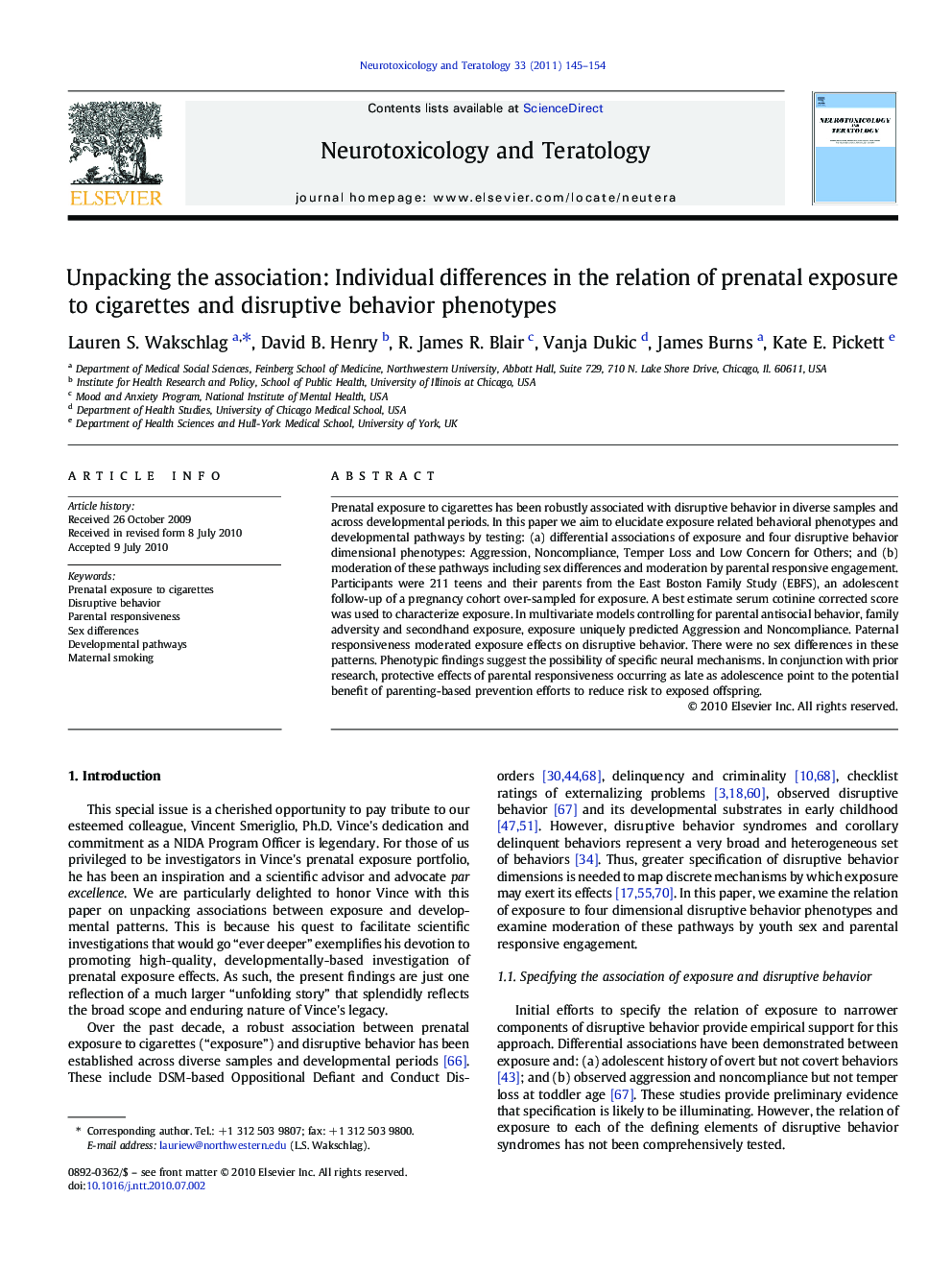| Article ID | Journal | Published Year | Pages | File Type |
|---|---|---|---|---|
| 2591721 | Neurotoxicology and Teratology | 2011 | 10 Pages |
Prenatal exposure to cigarettes has been robustly associated with disruptive behavior in diverse samples and across developmental periods. In this paper we aim to elucidate exposure related behavioral phenotypes and developmental pathways by testing: (a) differential associations of exposure and four disruptive behavior dimensional phenotypes: Aggression, Noncompliance, Temper Loss and Low Concern for Others; and (b) moderation of these pathways including sex differences and moderation by parental responsive engagement. Participants were 211 teens and their parents from the East Boston Family Study (EBFS), an adolescent follow-up of a pregnancy cohort over-sampled for exposure. A best estimate serum cotinine corrected score was used to characterize exposure. In multivariate models controlling for parental antisocial behavior, family adversity and secondhand exposure, exposure uniquely predicted Aggression and Noncompliance. Paternal responsiveness moderated exposure effects on disruptive behavior. There were no sex differences in these patterns. Phenotypic findings suggest the possibility of specific neural mechanisms. In conjunction with prior research, protective effects of parental responsiveness occurring as late as adolescence point to the potential benefit of parenting-based prevention efforts to reduce risk to exposed offspring.
